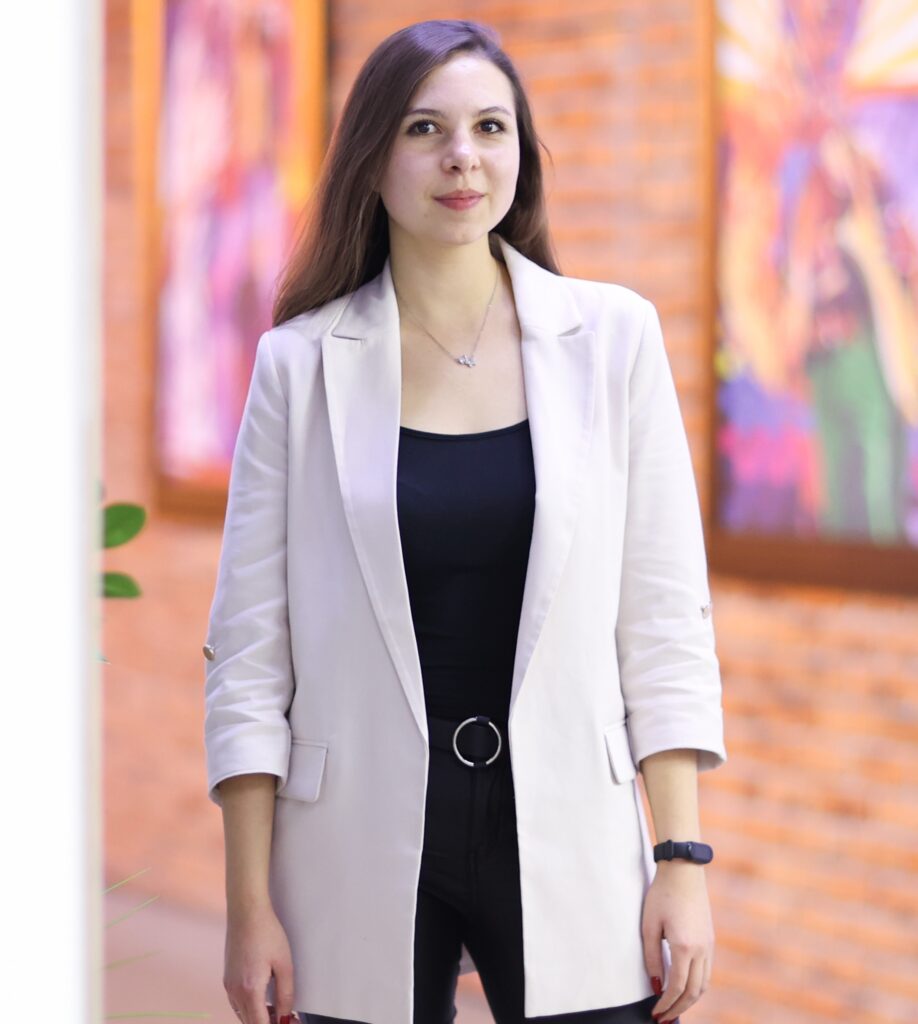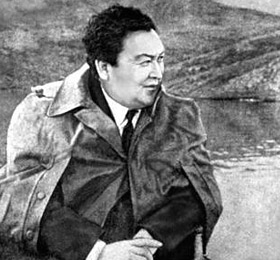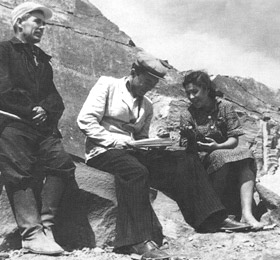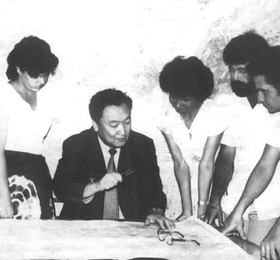Adelina Mukhamedyanova
Specialty: Petroleum Engineering. The winner of the Yessenov Scholarship.
 Adelina Mukhamedyanova just saw an advertisement for the scholarship program of the Yessenov Foundation on Instagram one day. It was in 2021, the rest is history. In this interview, a 22-year-old graduate of Satbayev University and the recipient of the Shakhmardan Yessenov Scholarship shares with you how she works and lives today.
Adelina Mukhamedyanova just saw an advertisement for the scholarship program of the Yessenov Foundation on Instagram one day. It was in 2021, the rest is history. In this interview, a 22-year-old graduate of Satbayev University and the recipient of the Shakhmardan Yessenov Scholarship shares with you how she works and lives today.
What is the reason for your choice of specialty?
Everything is simple. The point is petroleum engineering combines my favorite disciplines: thermodynamics, mechanics of liquids and gases, organic chemistry, resistance of materials and technical drawing. What I do has a direct impact on the economy of our country. My field of activity is strategically important and I want to take a direct part in its development, to help it reach a new level.
Adelina, how did you win?
I have always had an interest in understanding the world order, gaining academic knowledge and doing scientific research. I think that the members of the experts commission noted this in me as well as my sincere desire to contribute to the development of Kazakhstan through my work.
What can you advise the participants of this year’s competition?
First, I strongly recommend putting aside their doubts and fears and taking action. There is an opportunity to speak at a conference, write a scientific article, implement a project, become an activist in an organization, take part in the foundation’s program – so act. Secondly, I advise them to manage their time carefully and rationally, focusing on acquiring academic skills, volunteering and other extracurricular activities, thereby replenishing their CVs with new achievements. Thirdly, it would be very practical to choose a mentor, whom they want to look up to and to consult with on academic issues. He or she will help them figure themselves out, unlock their scientific potential and, knowing and seeing their hard work, will compose a letter of recommendation that will favorably distinguish the applicants from other participants in the program.
What did you spend the scholarship on?
I bought the technical literature I needed and paid for a chess school for myself and my younger brother. Thanks to the accumulated money, I was able to realize my dream by completing an internship in as many companies as possible. And this is actually quite a costly thing. After all, not all companies had the opportunity to finance the practice: accommodation, meals, travel. In addition, I learned a lot of useful practical skills in various departments of the companies where I interned.
What are you planning to devote yourself to in the next couple of years?
I think I will continue my professional development and study the processes that take place in the field as much as possible, so to speak, to replenish the bank of practical knowledge. I also plan to study IT and design, as it is difficult to do without these applied skills in my profession.
What are you interested in besides your specialty?
I like to find new recipes on the web and experiment with them in the kitchen. I occasionally play the violin, synthesizer, guitar and ukulele at home. Recently, a new hobby has appeared – photography. I also work out in the gym and try to travel as often as possible with my family.
How do you manage (if you do manage) to maintain a work–life balance?
Now I do, because I’ve adjusted to my work schedule. I can work in the field and be fully involved in the work for 28 days, which the field shift lasts. I devote a month off from work to my family, not forgetting about what is interesting to me personally.
Adelina, we have heard the expression “field shift” from some of the winners of the Yessenov Foundation programs, but we have no idea how the work is being built there. Will you tell us?
I work in the well testing department. We clean them, measure the parameters of the reservoir, provide information about the properties of hydrocarbons to the client, as well as the total amount of their reserves, productivity, the duration of production etc. The work on the field is continuous, so sometimes I work the day shift, and sometimes – the night shift. The day starts at 5:30 a.m. – the bus picks me up. At 7 a.m. I get to the well, the working day begins with a meeting where the work plan and safety measures are discussed. As a beginner, I am currently assisting field personnel, taking part in drawing up technological diagrams, preparing measuring instruments and accessories for projects, and assembling equipment. I record the parameters from the devices, take fluid samples and do an analysis. Every day the specifics of the work are strikingly different, so I always learn something new. In the evening, after the shift is over, we return home by 8 pm. This is how the working day on the field goes.
15.02.24, Stories
Seen by: 830





